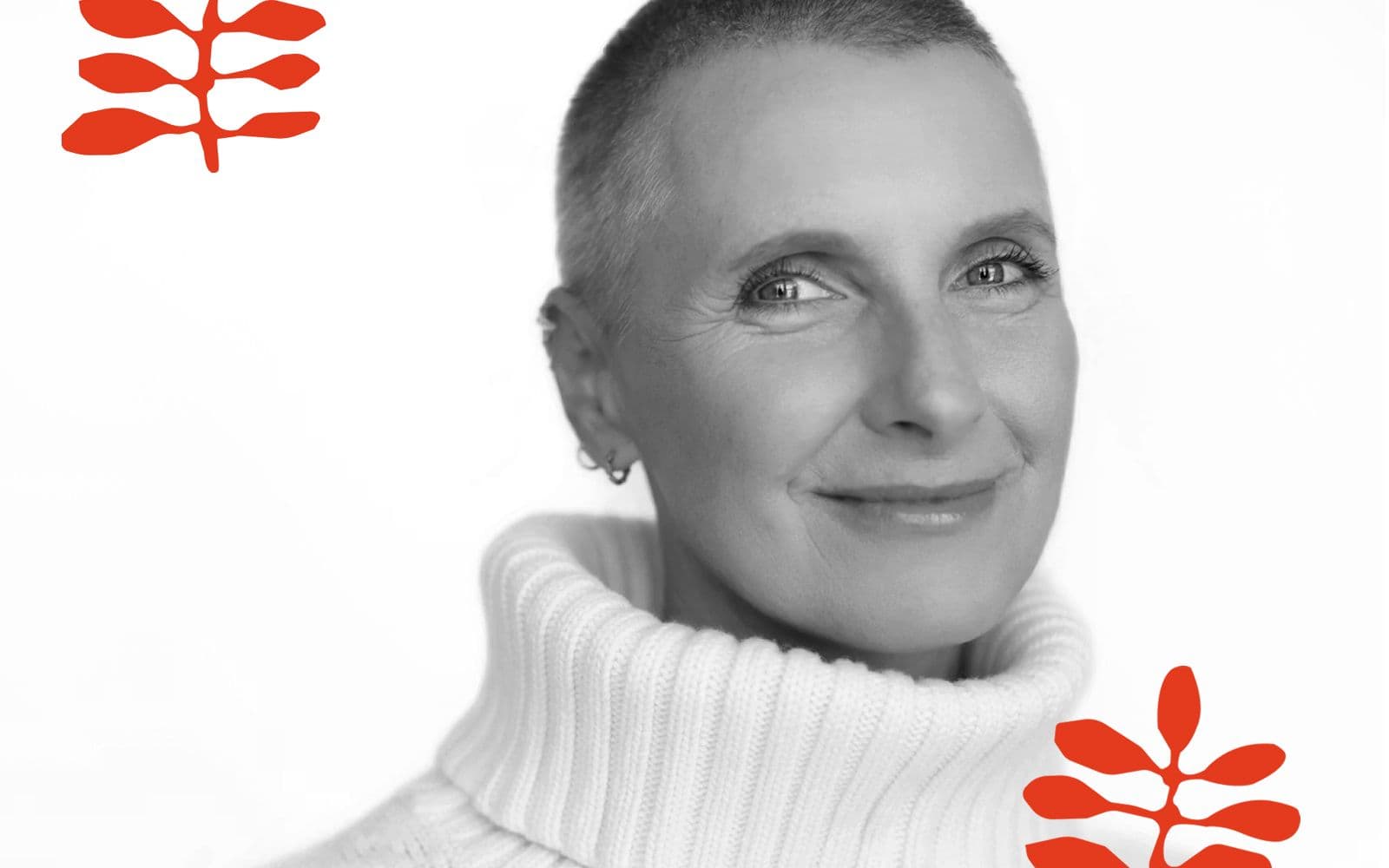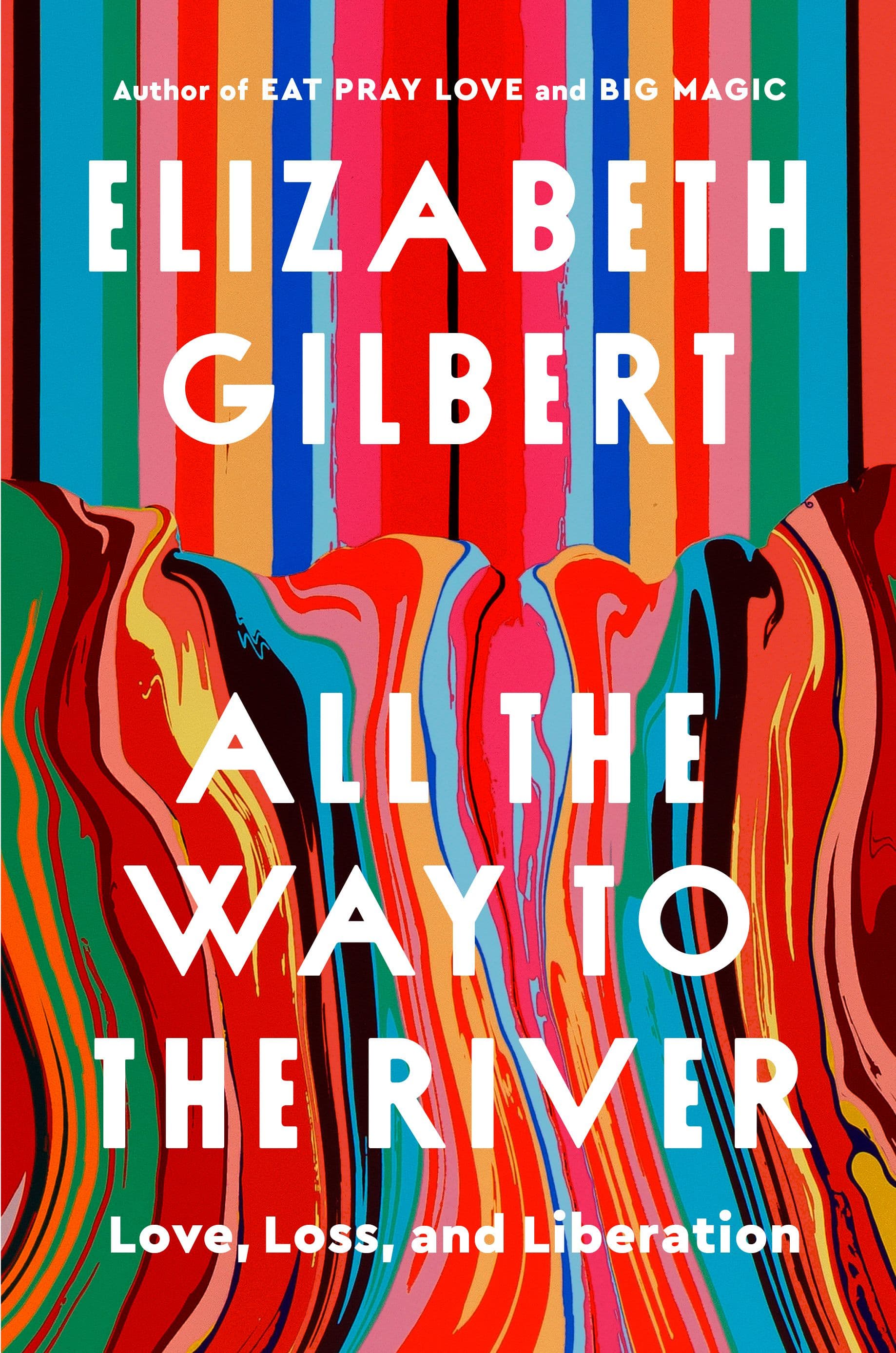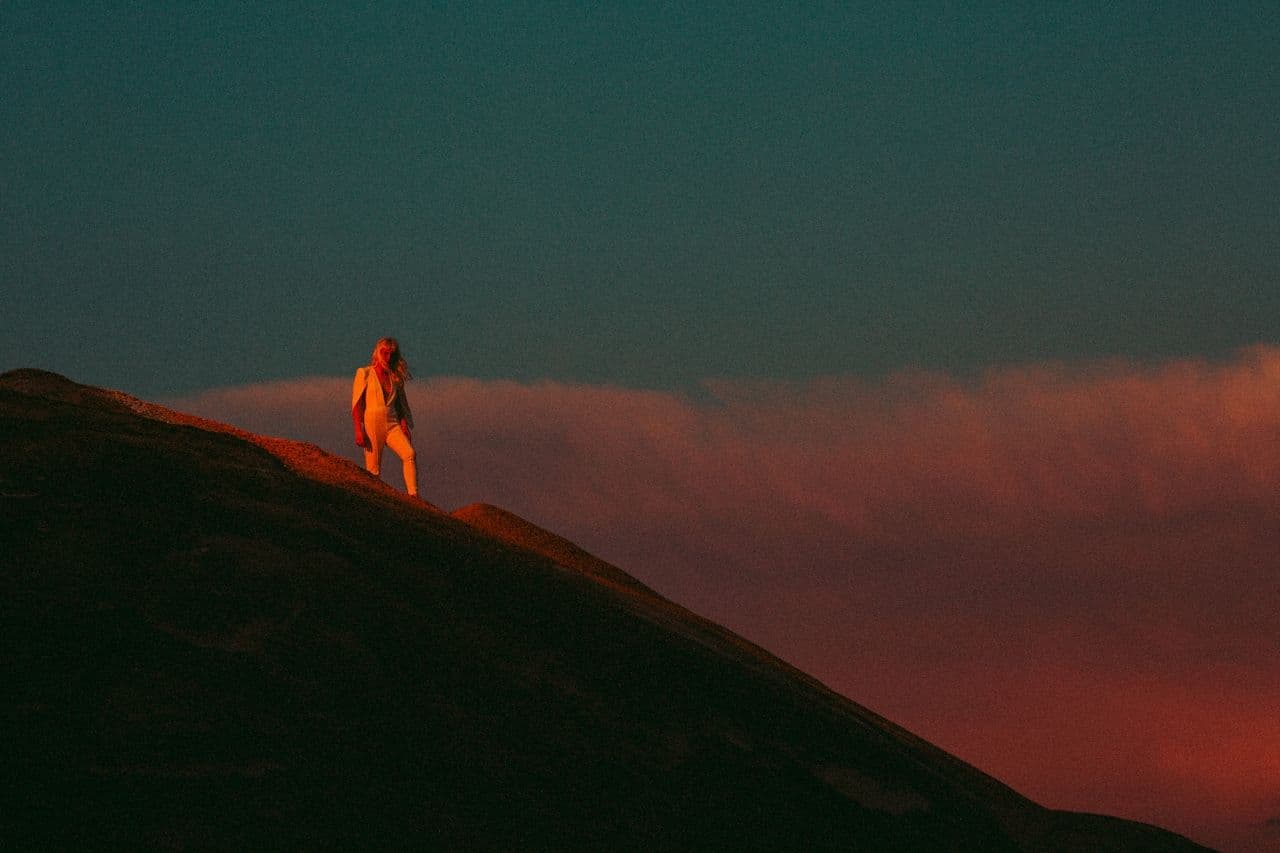If I were to describe the new memoir by Elizabeth Gilbert–author of Eat Pray Love–in three words, and it shouldn't be so reduced, they might be Grieve Grieve Love. It’s titled All the Way to the River: Love, Loss, and Liberation, and it’s so many books in one: it’s a memoir about addiction, it’s a catalogue of grief, and it’s a shattering love story about her relationship with her soulmate Rayya as she died of cancer. It’s also a eulogy and lover’s biography of Rayya, a charismatic, romantic downtown person of many opinions, troubles, and talents.
In our conversation we discuss the advice caregivers can’t take, the best (and very difficult) way to support your loved ones, agency, dignity, humility, and collaging your way through the dark nights of the soul.
Q:
You describe a sort of companionship that becomes romantic, right after Rayya receives her diagnosis, at the same time that it becomes a relationship in which you’re caregiving. Is there a kind of intimacy that only can only emerge in that intensity of caregiving?
A:
Yes, absolutely. In the book I call it like this deep, primal, mammalian response of one body taking care of another body when that other person isn't well. I think it's perhaps the deepest intimacy that you can share with somebody and the deepest vulnerability on both sides.
Q:
I was wondering if you think there is something sort of inherently romantic or even seductive in the urgency of life when it's under this real shadow of mortality?
A:
Yes, one hundred percent. Now, that might not be the case for everybody. People respond to death and the prospect of death in different ways. There are people who are so unsettled by the concept of mortality that they can't even be near it. There were people in Rayya’s life, toward the end, who just couldn't even come and see her when she was dying—which I don't judge at all. There are people for whom the prospect of death sends them into depression and into tremendous despair.
I think of the Rilke line: “you must change your life.” I must immediately change my life, however I've been living. This is a very short ride, and let's ride it as blazingly as we can. That's certainly how Rayya responded initially to her terminal cancer diagnosis, and it's also how I did. We were both very romantic people and, yes, the urgency can become extremely seductive.
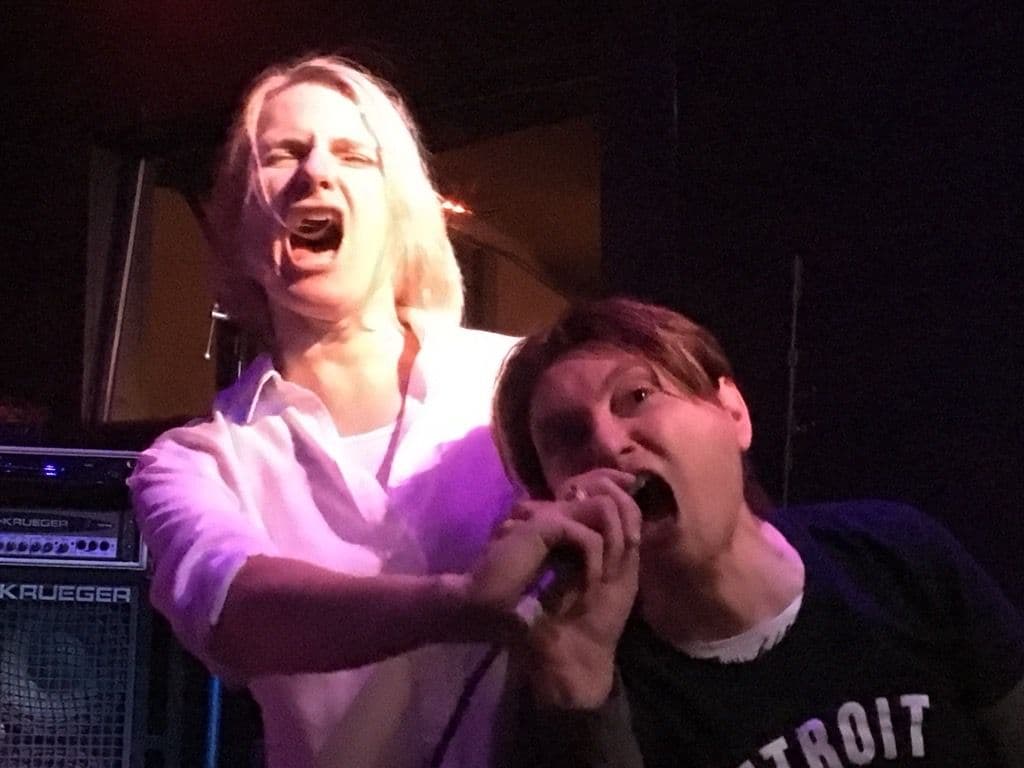
Elizabeth Gilbert and Rayya Elias, karaoke; shared by Elizabeth Gilbert.
Q:
Dignity is something I think about a lot with sickness and dying. Your book addresses this, like: what would we do if we didn't worry about dignity? Or: do you think dignity does more harm than good?
A:
[Laughs] People have a lot of opinions about how people should die. Families, friends, circles and communities, all have very different opinions. Doctors can have different opinions amongst themselves. Hospice people might see it differently than an oncologist might see it. This is a subject that instills passionate opinions. How do we leave? Should you fight to the bitter end for your life? Should you let go with grace? Should you pack your existence with bucket list items? Should you go into deep meditation?
What I came away with was the single most important thing that the person who is dying should have is as much agency over their life as they can possibly have, for as long as they have they can possibly have that. Their agency, I think, is more important than their safety. Their agency is more important than anything.
I felt like my role as Rayya’s partner was to defend her agency. And she made decisions that other people would not have made, and that angered people. And it was past the time where it was safe for her to live alone, where it was objectively dangerous, where she was hallucinating and she was falling down, I was like, ‘She wants to live alone like she wants to.’ She was an incredibly independent person. She loved her own power. She loved flexing her own power in the world for as long as she could. It was scary: she could fall, she could break her head, she could knock her head, she could wander out in the street, get lost and disappear. But, if she wants to spend the night alone in this apartment, I'm going to get out of the way and let her do that.
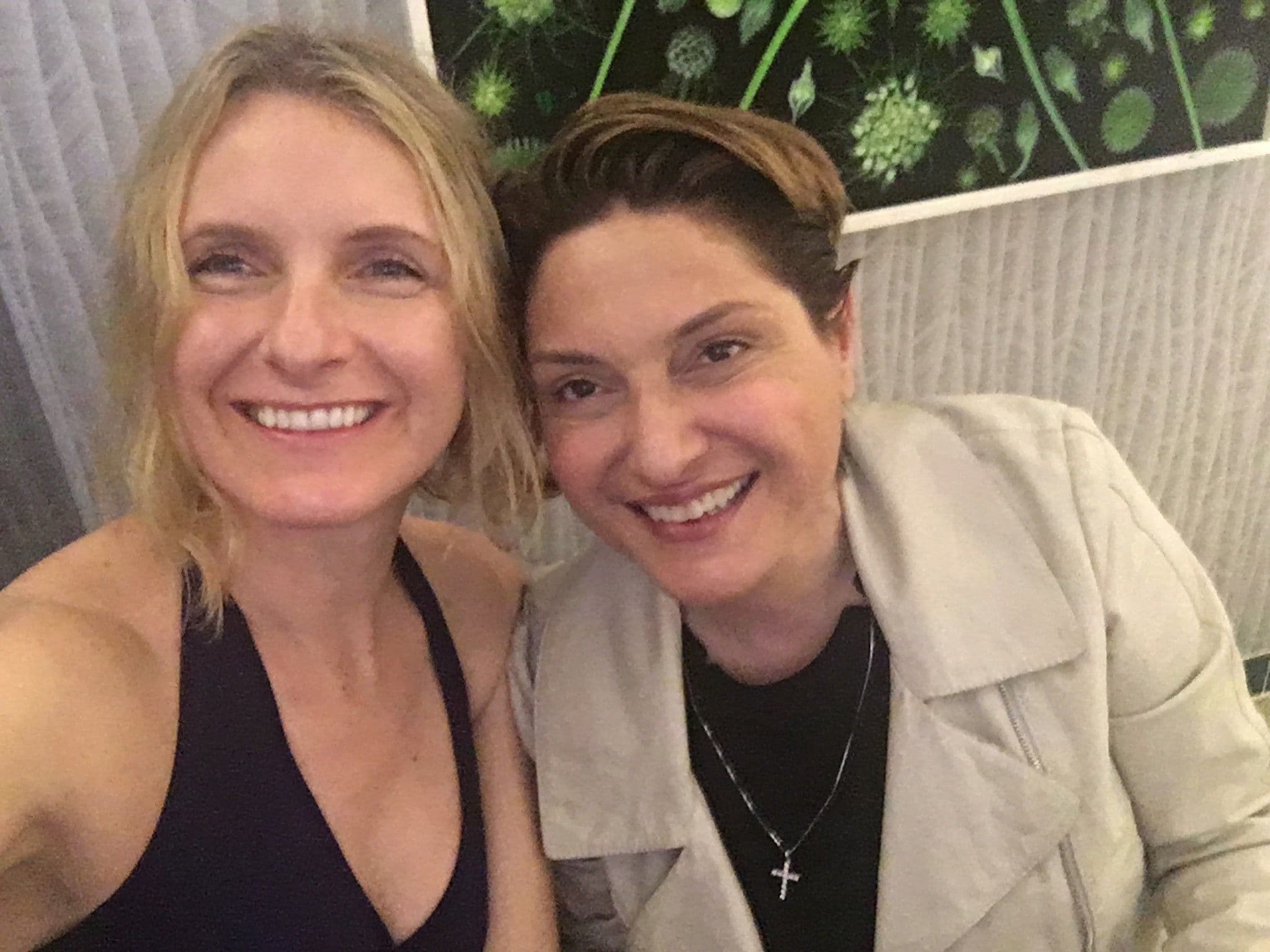
Elizabeth Gilbert and Rayya Elias. Shared by Elizabeth Gilbert.
Q:
If you could speak to someone who's newly entering this super intense caretaking space, what would you say to them?
A:
You can’t do it right. Oh, wow, I was about to say, ‘You can't do it wrong.’ But the truth is: you can't do it right, and you can't do it wrong.
I was very certain that I was going to do this right, that I was going to be the most incredible caregiver in the entire world, and that I was going to orchestrate this experience for both Rayya and for myself. I was going to be in control. Actually, maybe those two adages, you cannot do this right and you cannot do this wrong are true, not only of being a caregiver, but of like every single aspect of life. Efforts to fix, manage, and control situations around death and dying can be flummoxed by people's humanity, and by the exhaustion and by overwhelm, by your own stubborn, heartbreaking humanity and somebody else's stubborn, heartbreaking humanity.
So as much as it's possible, let go of perfectionism and ambitions. It seems like a funny thing to be ambitious about, but if you're like me, you're ambitious about everything. All I want to do is everything, right? I never want to make a mistake. This thing beat me down, like I couldn't do it right. Rayya had a very romantic and glamorous idea of death. Kind of rock and roll, better to burn out than it is to rust, pedal to the metal. And she was defeated by her pain and fear and humbled by it. I don't even want to say that you have to go into it with humility, because you can't. But the humility will find you.
Q:
Early into her diagnosis, Rayya gives you really good advice, that you need to get support for yourself as a caregiver. This is very standard advice, and yet, it’s very hard for people to take. You don’t take it, as you write. Why, do you think, is it so hard for caregivers to take care of themselves and take breaks?
A:
If the person who you love and need the most is dying, you’re not thinking. You are also not well—and you also need a caregiver. My heart was shattered and I was also in terror, because I was losing the person that I needed the most in the world. I masked that primal terror with an incredible show of competency, which is a strategy I've used often. If you're a super-coper and, and if you grew up being taught that you had to take care of yourself, you know that help isn't coming, that nobody does it better than you anyway.
There's a prideful aspect of it—and then I also felt a tremendous wave of greed for Rayya and her time, knowing how little of it there was left. I remember early days, other people taking her to doctor's appointments, and I actually felt this absolutely irrational wave of rage. Like, ‘No, she's my person. I take her to doctor's appointments. I’m there at the biopsy. She's mine.’ There was a feeling of hoarding and desperate, broken-hearted greed for every minute that I can have of this person, because they're slipping away.
Q:
You write about how people in grief can be raging, jealous, blaming; they can be gracious and also territorial—and you're forgiving of everyone and yourself here. What would you say to someone who feels like they’re behaving badly in their grief?
A:
Listen: I don't know if there's any way to avoid it. [One day, toward the end, Rayya and her friends] were all outside, sitting by the pool, eating hamburgers and laughing; I was in a room alone, shaking and crying and not wanting to show myself. And this friend came and knocked on the door. And I was like, ‘I don't want to be seen. I just need some space.’
And she said something so beautiful. She said, ‘Liz, I invite you to come outside and sit with your human family. Because every single one of us at that picnic table out there has experienced what you're feeling right now. This is part of being part of a human family, and we are not judging you for this. We would actually just like you to be with us in this state.’
That was so hard and humbling for me to come outside tear-streaked and shaking and vulnerable and just sit with my human family and allow myself to be seen that way. It's something that I've subsequently said. I found myself saying to others when they want to retreat. There's a lot of grief that has to be done in solitude. But I also have invited other people like, ‘Can you come outside and be with your human family?’
Lots of times we don't want to be human! The last thing we want to be is human. Gross! It’s just so messy. But that is, indeed, sometimes what we are called to be.
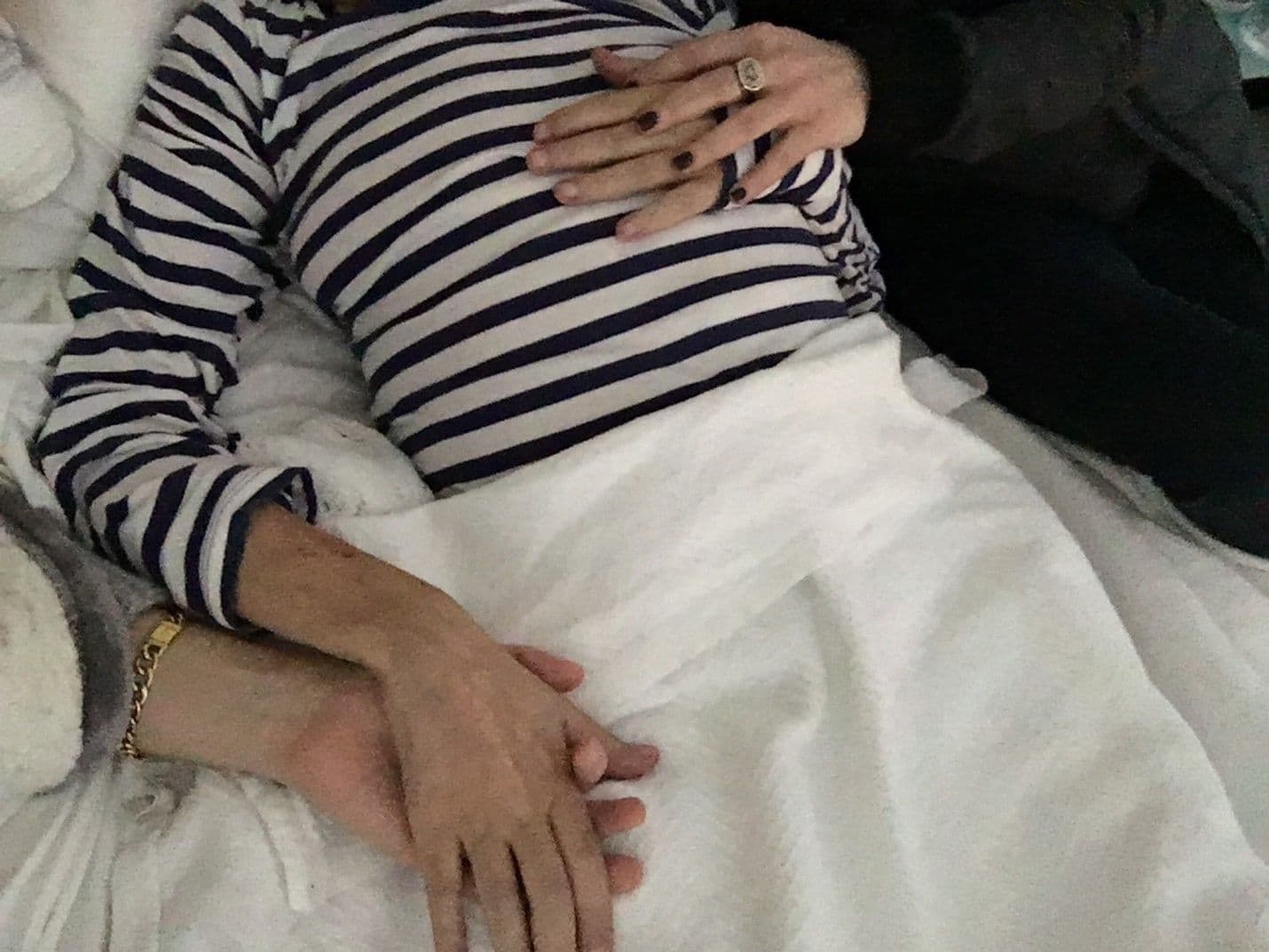
Elizabeth Gilbert and Rayya Elias, holding hands; shared by Elizabeth Gilbert.
Q:
What are some qualities that you value most in someone who is showing up during times of suffering or loss or pain or grief?
A:
This is a very hard thing to do, but the people who I most appreciated were the people who showed up and did not need to be taken care of themselves. That was quite difficult for them.
I just remember, like, dramas happening and pain happening, and just in the other room, just hearing [our friend] washing the dishes. She walked in and noticed that the kitchen wasn't clean, and just was like: ‘I’m gonna do the laundry and clean up the kitchen.’ And always with so much grace. And I remember asking her at one point: ‘How are you holding yourself together?’And she said, ‘I come and I help, and then I go and cry in the car.’
That's the admiration that I came away with: if I'm a little bit more on the periphery, if I'm not the point person, if I can show up and just wash the dishes and do the laundry and, when needed, go and sit in the car and cry, so that the people who are in the furnace of this thing don't have to take care of me. It's a beautiful, beautiful piece of grace.
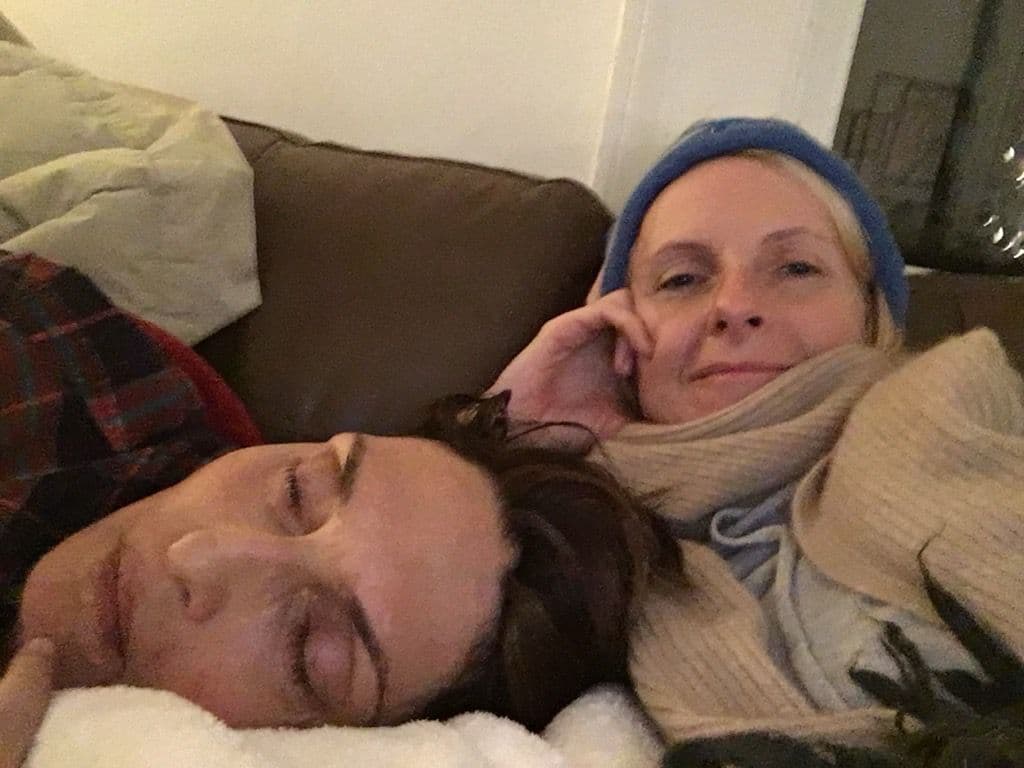
Elizabeth Gilbert and Rayya Elias on last days; shared by Elizabeth Gilbert.
Q:
You talk about the long, long nights—when you’re coping with grief and new to your own sobriety—and getting through them by making art. And it’s not your writing, it’s like doodles and collage, and you’d listen to your spiritual teachers. For people who really don't feel like artists, how do you describe the way this type of practice can be healing? Or even just like: good and distracting?
A:
There's something about making something by hand, something that takes time, that gets us out of our heads. There are times, I think, when our heads are just so insufferable. It's so hard to be there. It’s so hard to be in memory. It's so hard to be in grief.
If there's something that your hands know how to do, you don't need to have your head involved. This could be cooking or sewing or gardening or drawing or crocheting or knitting or woodworking. That's why I make collages, because I can't draw. It just takes me out of that anxiety loop.
The week after Rayya died, we invented the term: ‘deep grief cleaning.’ [Rayya’s beloved ex] was just pushing the vacuum cleaner and back across the kitchen one night so many times and I remember [Rayya’s other beloved ex] just standing up from the couch, going over, and unplugging the vacuum cleaner like, ‘Honey, I think the floor is clean.’
You need to let your hands do something that they know how to do. And, my friend Martha Beck has written a beautiful book recently called Beyond Anxiety. [It says] creativity exists on the opposite lobe of the brain from fear and a lot of grief here. So it's a toggle switch: you're either in creativity or you're in fear. You actually kind of can't be in both at the same time, physiologically. Enter into the creativity space no matter how rudimentary. Just sit and take a pile of pebbles and paint them pink. That became a really big part of my healing. You don't have to be an artist, but doing that will transform your nervous system.
Q:
Is there anything we didn’t talk about that’s on your mind?
A:
Whenever I get the chance to say this, I say this: I truly believe that you can’t grieve wrong. People move through an experience of unbearable pain, and people move through their experiences of unbearable pain the way they need to. I think whatever you have to do to survive is great.
And I actually feel like at the end of our life, when we die and move into whatever that field of consciousness that we come from, I think the first thing that you're going to hear is somebody saying: Good job. You did a good job. No matter what you did in your life, you did a good job. Because this is a very difficult thing to do, and however you do it is perfect. Signed, Elizabeth Gilbert. Thank you for coming to my book report! [Laughs] You have my permission to do this wrong and graspingly and without dignity. You have my permission, because if I don't give you permission, then the way I did it was wrong, and the way I did it was grasping and without dignity. [Laughs]
We all did it wrong, right? We're gonna keep doing it wrong and that's why it’s right. At the end, we're just left with mercy, or else, nothing. So that's it.
